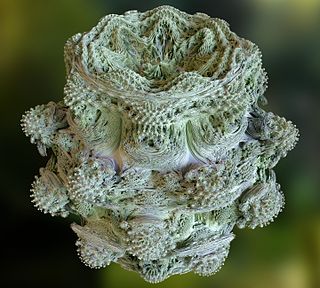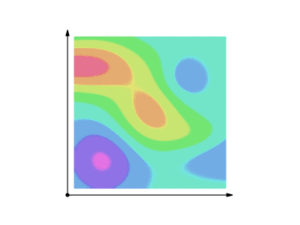|
Featured picture tools: |
These featured pictures, as scheduled below, appeared as the picture of the day (POTD) on the English Wikipedia's Main Page in November 2013. Individual sections for each day on this page can be linked to with the day number as the anchor name (e.g. [[Wikipedia:Picture of the day/November 2013#1]] for November 1).
You can add an automatically updating POTD template to your user page using {{Pic of the day}} (version with blurb) or {{POTD}} (version without blurb). For instructions on how to make custom POTD layouts, see Wikipedia:Picture of the day.Purge server cache
November 1

|
The Tomb of I'timād-ud-Daulah (here shown from the west) is a Mughal mausoleum in Agra, India, which was commissioned to hold the remains of Mirza Ghiyas Beg by his daughter Nur Jahan. Built between 1622 and 1628, it now holds many of Nur Jahan's relatives. Photo: Muhammad Mahdi Karim
Recently featured:
|
November 2

|
The Azure Kingfisher (Alcedo azurea) is a small kingfisher found in Australia, Papua New Guinea, and parts of Indonesia. First described in 1802, seven subspecies are known. Photo: JJ Harrison
Recently featured:
|
November 3

|
A portrait of a male Phidippus audax, also known as the daring or bold jumping spider. Here its iridescent chelicerae (mouthparts) are visible, as are its large forward-facing eyes, which give it good stereoscopic vision. Photo: Opoterser
Recently featured:
|
November 4

|
Duladeo Temple, dated to circa A.D. 1000–1150, is a Hindu temple dedicated to Shiva. It is located in Khajuraho, India. Photo: Marcin Białek
Recently featured:
|
November 5

|
American singer Frank Sinatra (1915–98) in 1947, at the Liederkrantz Hall in New York. Sinatra began his career in 1935, reaching unprecedented success after being signed by Columbia Records in 1943. After a lull in the late 1940s, his career regained new vigor in the 1950s. Photo: William P. Gottlieb
Recently featured:
|
November 6

|
A mandelbulb is a three-dimensional analogue of the Mandelbrot set, a mathematical set of points whose boundary is a distinctive and easily recognizable two-dimensional fractal shape. This image, for the iteration z ↦ z8 + c, is rendered with a volumetric ray tracing and path tracing global illumination algorithm in the Corona renderer. It took about 70 hours to completely render. Image: Ondřej Karlík
Recently featured:
|
November 7

|
Robert Sheehan (b. 1988) is an Irish actor who began his career in 2003. Since then he has been nominated for several awards for the TV series Misfits and Love/Hate. Photo: Marie-Lan Nguyen
Recently featured:
|
November 8

|
A Democratic campaign poster from the United States presidential election of 1864, showing presidential candidate George B. McClellan (left) and his running-mate George H. Pendleton. They lost to the Republican candidate, incumbent Abraham Lincoln, who became the first American president in 32 years to be reelected. Lithograph: Currier and Ives; Restoration: Lise Broer
Recently featured:
|
November 9

|
The Dark-sided Thrush (Zoothera marginata) is a species of bird in the thrush family Turdidae. Described by Edward Blyth in 1847, the species is closely related to the Long-billed Thrush and Scaly Thrush. Photograph: JJ Harrison
Recently featured:
|
November 10

|
Rabbs' fringe-limbed treefrog (Ecnomiohyla rabborum) is a large species of frog originally found in the forest canopies of central Panama. Only discovered in 2005, the species is thought to be extinct in the wild; only one specimen, a male at the Atlanta Botanical Garden, survives. Photograph: Brian Gratwicke
Recently featured:
|
November 11

|
The Crucified Soldier is a widespread story of an Allied soldier serving in the Canadian Corps who may have been crucified with bayonets on a barn door or tree while fighting on the Western Front during World War I. Three witnesses said they saw an unidentified crucified Canadian soldier near the battlefield of Ypres, Belgium, on or around 24 April 1915, but there was no conclusive proof such a crucifixion actually occurred. This poster, published in the Philippines in 1917, uses the story to sell liberty bonds to support the US war effort. Poster: Fernando Amorsolo; Restoration: Chris Woodrich
Recently featured:
|
November 12

|
In mathematics, a line integral is an integral where the function to be integrated, be it a scalar field as here or a vector field, is evaluated along a curve. The value of the line integral is the sum of values of the field at all points on the curve, weighted by some scalar function on the curve (commonly arc length or, for a vector field, the scalar product of the vector field with a differential vector in the curve). Diagram: Lucas V. Barbosa
Recently featured:
|
November 13

|
A juvenile male Ruby-throated Hummingbird (Archilochus colubris) hovering. The species, the smallest bird that breeds in the Eastern United States and Eastern Canada, is named after a distinctive red throat patch exhibited by adult males. Females and juveniles, however, do not have such a patch. Photo: Pslawinski
Recently featured:
|
November 14

|
The Befreiungshalle is a historical classical monument upon Mount Michelsberg above the city of Kelheim, Germany. Ordered by King Ludwig I of Bavaria in commemoration of his victories against Napoleon, the monument was constructed between 1842 and 1863. Photo: Richard Bartz
Recently featured:
|
November 15

|
The Mosque of Ibn Tulun in Cairo, Egypt, is a mosque which the historian al-Maqrizi lists as beginning construction in 876 AD. It has been restored several times, the first known restoration being in 1177. Photo: Berthold Werner
Recently featured:
|
November 16

|
Lothar Späth (b. 1937) is a German politician with the Christian Democratic Union and former minister-president of Baden-Württemberg. Photo: Felix König
Recently featured:
|
November 17

|
|
The Jebel Akhdar, meaning The Green Mountain, is part of the Al Hajar Mountains range in Oman. It is named for its ability to support agriculture despite the desert climate of the area. Photo: Philipp Weigell
Recently featured:
|
November 18

|
An Italian tree frog (Hyla intermedia) with an inflated vocal sac. Vocal sacs, flexible membranes of skin possessed by most male frogs, are generally used to amplify mating or advertisement calls. However, some species in the family Rhinodermatidae may also use the sac to store or transport their tadpoles. Photo: Benny Trapp
Recently featured:
|
November 19

|
|
A cutaway of an M4A4 Sherman tank , the primary tank used by the United States and the other Western Allies in World War II. The second most heavily produced tank of the war, the Sherman continued as the workhorse for the US military into the 1950s. In the Pacific theatre of the war, Sherman tanks proved superior to their Japanese counterparts, but in Europe they became outclassed by Germany's Tiger I and Tiger II tanks. Click on the image for an explanation of the labels. Diagram: Malyszkz
Recently featured:
|
November 20

|
The Pale-yellow Robin (Tregellasia capito) is a species of passerine bird endemic to eastern Australia. This insectivorous species prefers rainforest or dense eucalypt forest. Photo: JJ Harrison
Recently featured:
|
November 21

|
The Black-veined White (Aporia crataegi) is a species of butterfly found through much of the temperate Northern Hemisphere. The specimen seen here was photographed in Germany. Photo: Christian Fischer
Recently featured:
|
November 22

|
A posthumous portrait of U.S. president John F. Kennedy, completed by Aaron Shikler in 1970. Kennedy was assassinated on November 22, 1963, in Dallas, Texas. Lee Harvey Oswald was arrested that evening for the crime, but was killed by Jack Ruby two days later, before a trial could take place. The FBI and the Warren Commission officially concluded that Oswald was the lone assassin, but conspiracy theories persisted. In 1978, a select committee concluded that both investigations were flawed and that the assassination was probably the result of a conspiracy. Painting: Aaron Shikler
Recently featured:
|
November 23

|
Matsumoto Castle is a castle in Matsumoto, Nagano Prefecture, which is now considered a National Treasure of Japan. Built in the 16th century, the castle remained in use for over 300 years. Parts were demolished during the Meiji Restoration, but the interior keep remains. Photo: 663highland
Recently featured:
|
November 24

|
|
A caterpillar from the species Papilio machaon, also known as the Old World Swallowtail. The caterpillar spends the first part of its life with the appearance of a bird dropping, which serves as an effective defense against predators. As the caterpillar grows larger, it becomes green with black and orange markings and becomes capable of releasing a foul smell if disturbed, which deters insects, but not birds. Photo: Archaeodontosaurus
Recently featured:
|
November 25

|
St. Paul's Church is a Swiss Reformed Church in Basel, Switzerland, that was constructed between 1898 and 1901 by Karl Moser and Robert Curjel. Photo: Taxiarchos228
Recently featured:
|
November 26

|
An artificially grown bismuth crystal, illustrating the stairstep crystal structure, with a 1-cm cube of bismuth metal for comparison. The iridescent surface here is a very thin layer of oxidation. Photo: Heinrich Pniok
Recently featured:
|
November 27

|
Mycena atkinsoniana is a species of agaric fungus in the family Mycenaceae that grows scattered or in groups on leaf litter in forests during the summer and autumn. This specimen was photographed in Strouds Run State Park, Ohio, US. Photo: Dan Molter
Recently featured:
|
November 28

|
John Henry Newman (1801–90) was a British cleric and leader in the Oxford Movement, a group of Anglicans who wished to return the Church of England to many Catholic beliefs and forms of worship traditional in the medieval times. In 1845 Newman converted to Catholicism, eventually rising to cardinal. Painting: John Everett Millais
Recently featured:
|
November 29

|
|
The Christmas Flood of 1717 was the most recent large flood in the northern Netherlands, caused by a northwesterly storm that hit the coast of the Netherlands, Germany and Scandinavia on Christmas night of 1717. Approximately 14,000 people drowned. Floodwaters reached the towns and cities of Groningen, Zwolle, Dokkum, Amsterdam, and Haarlem. Many villages were devastated in the west of Vlieland, behind the sea dykes in Groningen province, and elsewhere. Engraving: Unknown
Recently featured:
|
November 30

|
The Straw-necked Ibis (Threskiornis spinicollis) is a nomadic bird of the ibis and spoonbill family Threskiornithidae which can be found in Australia, New Guinea, and parts of Indonesia. They eat a variety of food, including molluscs, frogs, grasshoppers, crickets, and locusts. Photo: JJ Harrison
Recently featured:
|
Picture of the day archives and future dates